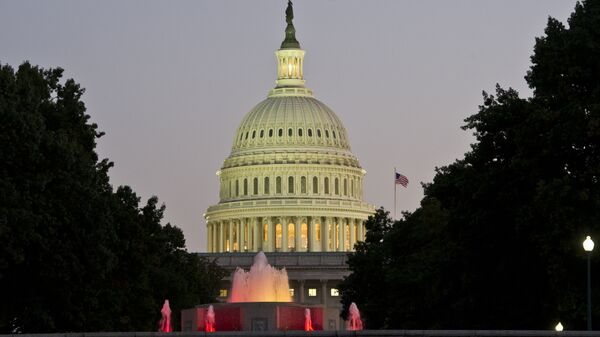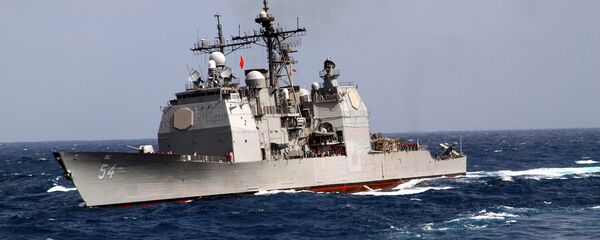A defense policy bill that made its way through Congress over the past couple weeks, known as the "John S. McCain" National Defense Authorization Act of 2019 (NDAA), contains a section on "matters relating to foreign nations" stipulating that a report must be produced "on military and coercive activities of the People's Republic of China in the South China Sea" as Beijing undertakes such activities.
The production of such a report will serve as justification for sustained US maneuvers in the region, such as "freedom-of-navigation" missions, but it won't do anything to pressure China into changing the course of its activities in the strategic waterway, an expert told Sputnik.
"Publication of new information on Chinese militarization of the disputed island will justify continued and enhanced US presence, but so far it has not helped to curtail Chinese activities, so I fail to see how more publication will achieve that goal," Yun Sun, co-director of the East Asia program at the Stimson Center, told Sputnik News Friday via email. The Stimson Center is a nonpartisan policy research think tank based in Washington.
Indeed, Beijing has called US Navy freedom of navigation missions a threat to China's sovereignty and described them as provocative.
Congress wants the Pentagon's reporting to include notes on "any significant military deployment or operation or infrastructure construction" in the South China Sea. Lawmakers said such South China Sea reports are to be submitted to Congress and released to the public.
"Each report on a significant reclamation or militarization activity… shall include a short narrative on, and one or more corresponding images of, such significant reclamation or militarization activity," according to the text of the defense policy bill.
The bill furthermore contains aggressive language about what Beijing's military is doing in the South China Sea.
"It is the sense of Congress that the pace and militarization by the Government of the People's Republic of China of land reclamation activities in the South China Sea is destabilizing the security of United States allies and partners," the text of the bill says. The measure overwhelmingly passed the Senate and is expected to be signed into law by US President Donald Trump soon.
The US Congress declared that China's activities in the South China Sea — perhaps akin to US activities in the Gulf of Mexico or along one of its borders with the Atlantic and Pacific Oceans — are even "threatening core United States interests."
Aside from demanding future regular reports on Beijing's moves in the South China Sea, the US also recently prohibited the People's Liberation Army-Navy from participating in the multilateral RIMPAC exercises in Hawaii until further notice.
Beijing can get back into RIMPAC exercises under very specific conditions that defy China's current stance to defend itself by militarizing the sea: the Chinese government would have to cancel "all" reclamation activities in the South China Sea, withdraw its defense weaponry from islets in that sea and establish a "four-year track record of taking actions toward stabilizing the region."





